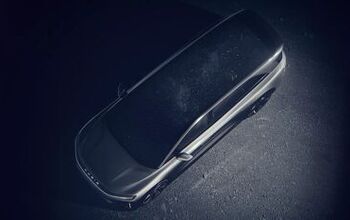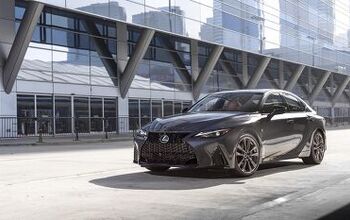A Group of Automakers is Pledging Automatic Braking For Everyone

In six years, almost every new car sold in the U.S. will come with automatic emergency braking systems, making the relatively new safety feature as prolific as airbags or anti-lock brakes.
A group of 10 major automakers plans to announce tomorrow that they will make automatic braking standard on all of their cars by September, 2022, Reuters reports.
Members of the group, which includes Ford, General Motors, Fiat Chrysler Automobiles, Honda, Toyota and Volkswagen, have been in talks with the National Highway Traffic Safety Administration (NHTSA) and Insurance Institute for Highway Safety (IIHS) for several months as they hashed out a plan.
Standard automatic braking would represent a big leap in the amount of autonomous technology installed in new vehicles, though automakers are increasingly turning to it as a way of improving road and pedestrian safety.
Under the proposed agreement, some automakers would be allowed to take longer installing the technology in vehicles where it is difficult to adapt, such as those equipped with manual transmissions (but how many of those will be left in 2022?).
NHTSA Administrator Mark Rosekind has previously said that having automatic braking in all cars would prevent 20 percent of all crashes, or 1 million accidents annually in the U.S. alone.
By voluntarily agreeing to adopt the technology, the automakers avoid having it imposed on them sometime in the future by bodies like the NHTSA.

More by Steph Willems


































Comments
Join the conversation
I've had time to think about it. DeadWeight gets street cred for making me think. Think! Imagine that.
Go up a twisting 10 degree incline. Cars parked on your passenger side will set any type of radar off. My 2016 silverado has lane keep assist, and collision warning. It goes haywire in some situations thinking I'm in full mid crash, because I floored it around a wide turn, and it saw a car that looks like it's heading for the front. It doesn't apply the brakes but it pumps them up for hard use, while vibrating the seat, and flashing bright red lights in heads up.and making noises. I think it's good but I know for a fact it can't work perfect in a city.too many variables. Construction work,streets that are so tore up you think your in Moab.no sensors can handle what some cities are made outta. I can't keep a new truck for more than 20k from New. They fall apart in short order hitting the streets like I have near me. I don't think this will work.
So we have one commenter "orenwolf" who clearly has imbibed the idea that whatever electronic doohickey they come up with next will always be integrated correctly and will fail catastrophically so rarely as to be insignificant; this despite daily examples of how well consumer-grade electronics built to a cost target work (Micro$oft, anyone?). And many others sounding a note of caution. But I want to come at it from a slightly different perspective: what is going to happen once the cars with all this stuff start failing? You know that when the automatic braking system, or the stop-start system, or whatever comes after that, fails, it will set an error code and you won't be able to get your car inspected or registered. What's going to happen the next time the economy tanks, and all the baristas and Wal-mart clerks can't afford to get their 10 and 15 year old cars with failed nanny systems fixed, and they have to have those cars to get to work? I remember what it was like in the 70s when the economy sucked. But in those days most adults either had grown up in the Depression or their parents had, and they understood self-reliance, and most of the equipment you needed to carry on your life could be fixed by anyone reasonably attentive with a decent kit of tools. And of course if you go back to the Depression itself, most of the equipment could be fixed with baling wire and twine. What's going to happen the next time, once everyone is specialized and no one can fix anything themselves?
How long before Big Brother gets access to all of our vehicles and forces us all to stop fleeing the country? I loathe this idea. More reason to keep my old car.